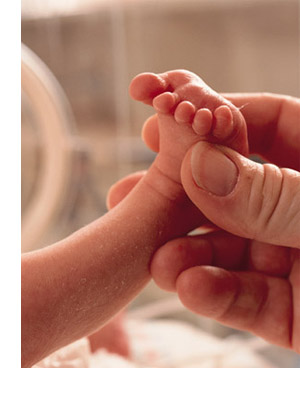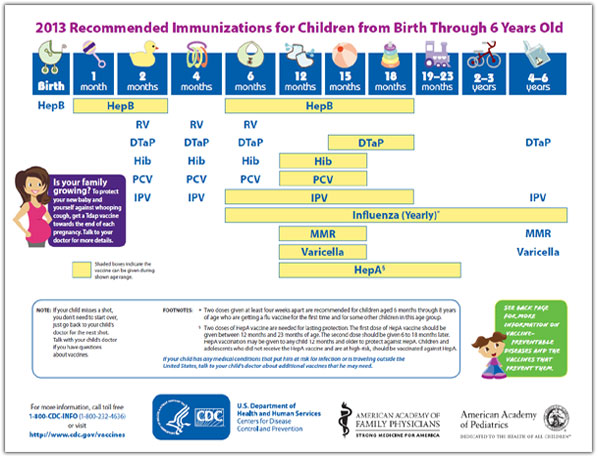A premature baby, or preemie, is defined as one that is born before the 37th week of pregnancy. A full term pregnancy is 40 weeks. More than a half million babies are born premature each year in the United States or about 1 in every 8 births. Prematurity is the leading cause of death in newborns and preemies are at increased risks for lifelong health problems.
 Medical problems associated with being born premature Medical problems associated with being born premature
Premature infants may face a number of health challenges, including:
Some premature babies require special care and spend weeks of months in the hospital, often in a neonatal intensive care unit.
The National Institutes of Health, National Library of Medicine and Medline Plus have provided more detailed information on some common problems associated with premature infants. Click on the link for each condition. (http://www.nlm.nih.gov/medlineplus/prematurebabies.html#cat69)
Preterm labor warning signs
Doctors sometimes decide to deliver a baby early because of concerns for the health of the mother or the baby. Despite the problems associated with a premature birth, this may be the safest option. However, in most cases preterm labor begins unexpectedly.
Preterm labor warning signs include:
- Contractions (your abdomen tightens like a fist) every 10 minutes or more often
- Change in vaginal discharge (leaking fluid or bleeding from your vagina)
- Pelvic pressure — the feeling your baby is pushing down
- Low, dull backache
- Cramps that feel like a menstrual period
- Abdominal cramps with or without diarrhea
Should you experience any of these symptoms during pregnancy call your doctor’s office immediately.
Risk factors for preterm labor
There are some known risk factors for premature birth. But even if a woman does everything “right” during pregnancy, she can still have a premature baby.
- Carrying more than one baby (twins, triplets, quadruplets or more)
- Having a previous preterm birth
- Problems with the uterus or cervix
- Chronic health problems in the mother, such as high blood pressure, diabetes, and clotting disorders
- Certain infections during pregnancy
- Drinking alcohol
- Using illicit drugs
- Smoking
- Black race
Ways to improve your health and lower your risk for delivering prematurely
Preterm birth can happen to anyone and many women who have a premature birth have no known risk factors. There are things, however, a woman can do to help your own health and lower the risk of having a premature baby.
- Quit smoking and avoid substances, such as alcohol or drugs.
- See your health care provider for a medical checkup before pregnancy.
- Work with your health care provider to control diseases, such as high blood pressure or diabetes.
- Get prenatal care early, as soon as you think you may be pregnant, and throughout the pregnancy.
- Discuss concerns during pregnancy with your health care provider, and seek medical attention for any warning signs or symptoms of preterm labor.
Birth is a complex but, fortunately, the outcome for most women is a full-term, healthy baby. More research still is needed to understand the risk factors for premature birth, such as how family history, genetics, lifestyle and environment may interact to put some women at greater risk for a premature delivery.
More information
Immunizations
The CDC has determined that in the majority of infants born prematurely, regardless of birth weight, should be vaccinated with the same dose(s), at the same chronological age and according to the same schedule and precautions as full-term infants and children.
Children should receive their first immunizations two months after birth. The one immunization that a premature infant may not receive on schedule is the hepatitis B vaccine, which is usually given at birth. This vaccine is not effective in very small infants and is not given until an infant is at least 2,000 grams.
The following is the recommended schedule of immunizations:

Click the image above for a full-size, printable PDF.
Recommended Immunizations for Children from Birth Through 6 Years Old (En Espanol) - PDF
Respiratory Syncytial Virus (RSV)
Babies born earlier than 37 weeks of gestational age are at elevated risk for RSV. Those less than 32 weeks at birth are at even greater risk for severe RSV disease due to the lack of full development of their lungs and immune responses. Small preemies are more likely to develop subsequent issues associated with chronic or recurring lung disease.
Family members can help prevent babies from contracting RSV by understanding how it's acquired and taking these steps:
- Avoid exposure. The best way to protect against RSV is to make sure other children and adults with cold symptoms stay away from the baby.
- Keep it clean. This virus can survive on surfaces for several hours. It thrives on countertops and tissues. Family members should avoid touching these surfaces, then handling the baby or objects, such as toys or bottles used for the child. Otherwise, the virus can infect the baby through his or her eyes and nose. It is important to keep toys and personal items as clean as possible. Anyone who comes in regular contact with the child should take the time to wash his or her hands or use antibacterial gels often.
- Assess the risk. If the baby was premature, it is important to check with his or her pediatrician to see if the child is at higher risk than normal for RSV. The doctor also should go through all the options to helping to protect the baby from the virus.
- Monitor the baby. Family members should be on the lookout for any persistent coughing, wheezing or difficulty breathing and contact a pediatrician if observed.
- Trust your instincts. Parents or other family members who are the primary caretakers almost always know their baby better than anyone else. If the baby looks somehow "off" to you - appears lethargic, acts different or has trouble feeding - don't hesitate to dial the pediatrician's number.
Research is underway to find a vaccine against RSV for young infants and other children with certain health problems. For babies at high risk for developing severe RSV disease, a monthly prescription medication to help protect against more serious disease is available. Your pediatrician should have information about this medication, which contains antibodies against the virus. He or she also will determine whether your child is eligible to receive the drug.
|

